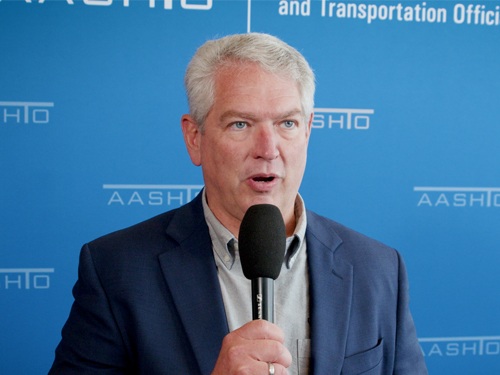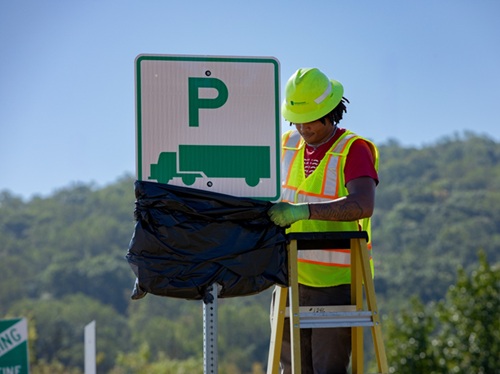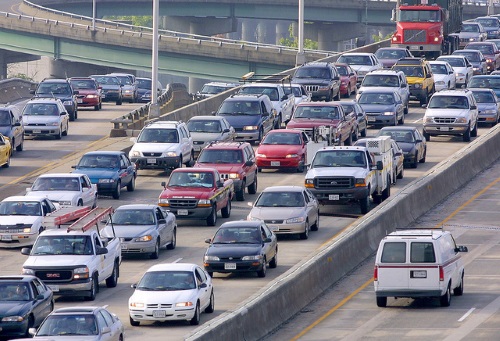The U.S. Travel Association released a survey on May 22 that it said shows Americans avoided an estimated 47.5 million auto trips in 2018 due to highway congestion; equivalent to the loss of $30 billion in travel spending and 248,000 jobs, according to the organization’s economists.
[Above photo by the Virginia Department of Transportation.]
The survey also found that comfortable majorities of American auto travelers would prefer to pay more in user fees to fund system improvements rather than sit in traffic, noted Roger Dow, the group’s president and CEO.

“The infrastructure discussion tends to grind to a political halt when it turns to resources,” he explained in a statement. “So we tested the funding question with polling. The interesting thing we found is that Americans are willing to pay more as long as their money is explicitly used to improve transportation in their region.”
Key findings from the survey include
- For each additional hour traffic adds to a weekend car trip, travel demand drops by an average of about 18 percent.
- Two-thirds (66.1 percent) of auto travelers said they would rather pay an additional $2 to $3 each way to fund transportation projects than sit for an additional 1.5 to two hours in traffic each way.
- More respondents (60 percent) said traffic congestion would be a greater deterrent to car travel than a 25-cent increase in gas taxes (40 percent).
- Overall, most auto travelers (80 percent) said that additional gas taxes will not negatively impact the frequency of their travel by car. Among these travelers, nearly 89 percent said up to a 25-cent gas tax increase would not negatively impact their car travel.
- When told Congress is considering proposals to increase other taxes and fees on drivers that would result in transportation improvements, 64.8 percent of auto travelers said they are “willing” to support such proposals. Yet 23 percent said they are “unwilling” to support such proposals because there is no assurance that the funding would go to projects in their region.
“Our survey gave travelers a choice: would you rather pay more, or continue to sit in traffic? And two-thirds said they would rather pay a little more,” Dow noted. “We hope that gives Congress some encouragement to make difficult decisions, because data shows us that inaction is putting the brakes on connectivity and prosperity.”
 Nation
Nation
WVDOT Profiled in Latest State DOT 2-Minute Update
October 10, 2025 Nation
Nation

